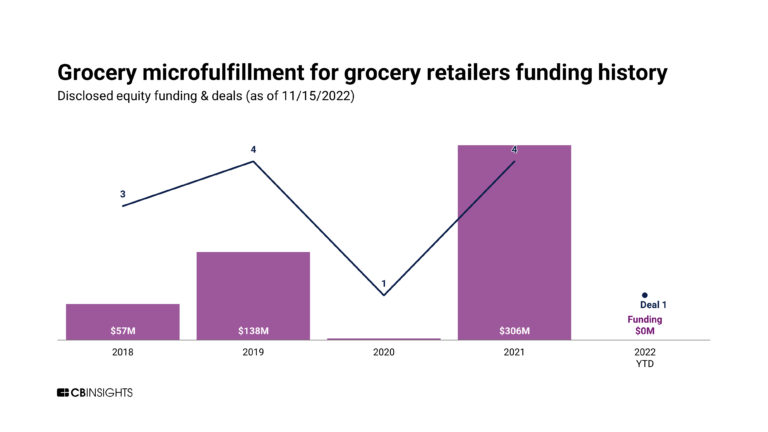
Fabric
Founded Year
2015Stage
Series C | AliveTotal Raised
$336.01MValuation
$0000Last Raised
$200M | 4 yrs agoMosaic Score The Mosaic Score is an algorithm that measures the overall financial health and market potential of private companies.
-30 points in the past 30 days
About Fabric
Fabric specialises in automated fulfilment solutions for the grocery, health, and beauty sectors within the retail technology industry. The company offers products that optimise inventory and automate order processing for both business-to-business (B2B) and business-to-consumer (B2C) operations. Fabric's solutions fit various urban spaces and utilise proprietary robotics and software to assist in the fulfilment process. Fabric was formerly known as CommonSense Robotics. It was founded in 2015 and is based in Tel Aviv, Israel.
Loading...
Fabric's Product Videos
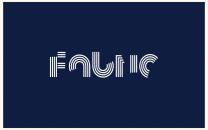
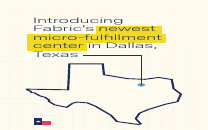
ESPs containing Fabric
The ESP matrix leverages data and analyst insight to identify and rank leading companies in a given technology landscape.
The automated storage and retrieval systems (ASRS) market helps businesses optimize warehouse operations through computer-controlled systems that automatically store and retrieve goods. These systems use various technologies including robotic shuttles, stacker cranes, vertical lift modules, and autonomous mobile robots to maximize warehouse space utilization and increase fulfillment efficiency. AS…
Fabric named as Challenger among 15 other companies, including Locus Robotics, AutoStore, and Murata Manufacturing.
Fabric's Products & Differentiators
The Fabric Smart Cube
Our product enables brands and retailers to achieve profitable eCommerce fulfillment with high-throughput and high-density automation. Our cube-based fulfillment solution includes both hardware and software components that enable a wide range of operational activities to improve fulfillment efficiency. Our system is broken down into five parts: lift robots, ground robots, touchpoints, robotic picking arms, and the proprietary software that powers each of our hardware components. Our 3D topology is highly flexible, allowing us to fit into nearly any footprint, no matter the size, shape, or structural design constraints. Because of the flexible nature of our product, we’re able to serve a wide variety of use cases including: micro-fulfillment, back of store fulfillment, and B2B replenishment, and more.
Loading...
Research containing Fabric
Get data-driven expert analysis from the CB Insights Intelligence Unit.
CB Insights Intelligence Analysts have mentioned Fabric in 5 CB Insights research briefs, most recently on Feb 13, 2025.
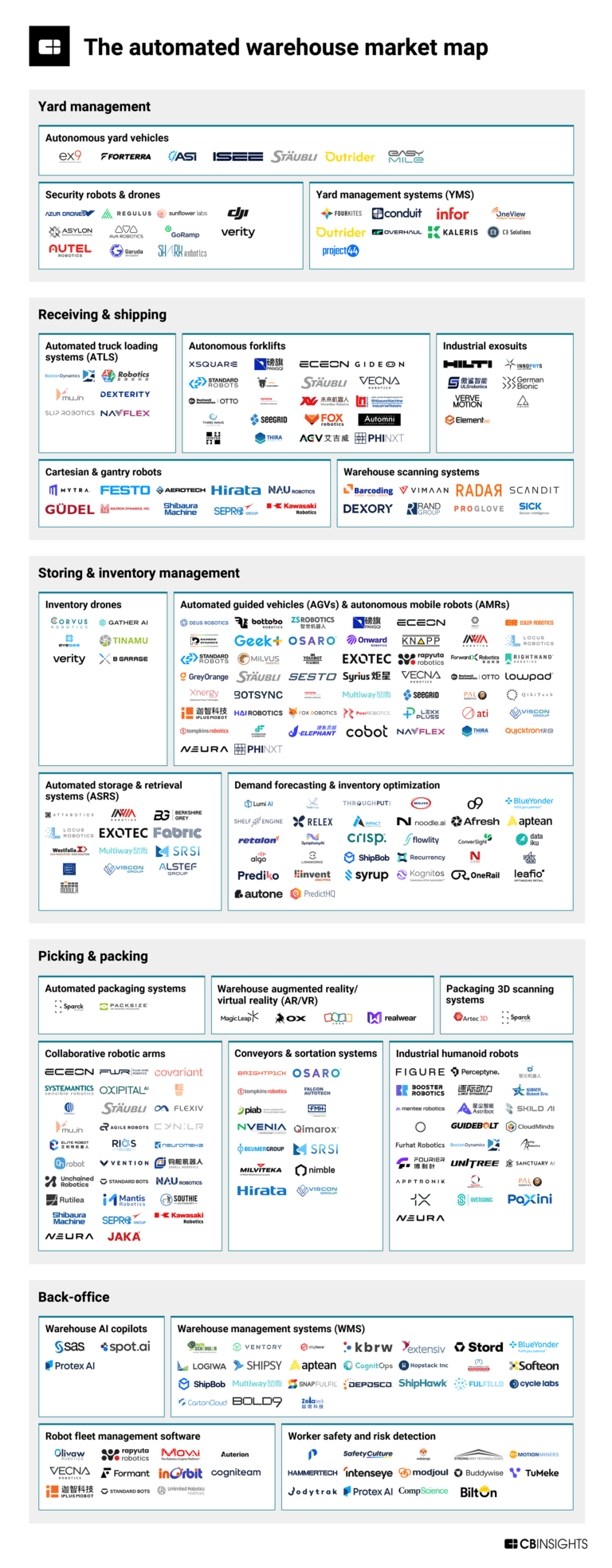
Feb 13, 2025
The automated warehouse market map
Sep 28, 2023
The automation in advanced manufacturing market map
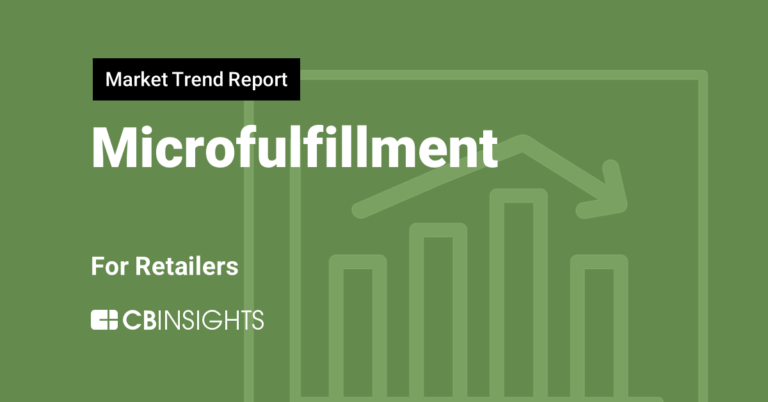
Feb 21, 2023
Market Trend Report: Microfulfillment for retailersExpert Collections containing Fabric
Expert Collections are analyst-curated lists that highlight the companies you need to know in the most important technology spaces.
Fabric is included in 9 Expert Collections, including Store tech (In-store retail tech).
Store tech (In-store retail tech)
2,034 items
Companies that make tech solutions to enable brick-and-mortar retail store operations.
Supply Chain & Logistics Tech
6,253 items
Companies offering technology-driven solutions that serve the supply chain & logistics space (e.g. shipping, inventory mgmt, last mile, trucking).
Unicorns- Billion Dollar Startups
1,309 items
Robotics
2,753 items
This collection includes startups developing autonomous ground robots, unmanned aerial vehicles, robotic arms, and underwater drones, among other robotic systems. This collection also includes companies developing operating systems and vision modules for robots.
Grocery Retail Tech
831 items
Startups providing B2B solutions to grocery businesses to improve their store and omni-channel performance. Includes customer analytics platforms, in-store robots, predictive inventory management systems, online enablement for grocers and consumables retailers, and more.
Conference Exhibitors
5,302 items
Fabric Patents
Fabric has filed 1 patent.

Application Date | Grant Date | Title | Related Topics | Status |
|---|---|---|---|---|
6/8/2016 | 11/12/2019 | Arcade games, Actuators, Gears, Antennas (radio), Control theorists | Grant |
Application Date | 6/8/2016 |
|---|---|
Grant Date | 11/12/2019 |
Title | |
Related Topics | Arcade games, Actuators, Gears, Antennas (radio), Control theorists |
Status | Grant |
Latest Fabric News
Sep 11, 2025
Fabric Launches AI Platform Orchestra to Automate Fulfillment AI-powered tools that unify robotics, customer experience, inventory and labor into one intelligent system Fabric , the technology company reshaping retail fulfillment, today launched Orchestra, an AI-native software suite that closes the gap between automation and business outcomes. By combining the speed and precision of robotics with AI-powered decision-making, Orchestra enables retailers to cut costs, reduce shrink, and deliver better customer experiences, without adding complexity or training burdens. Designed with the realities of retail in mind, Orchestra helps teams onboard new employees faster, makes automation tools intuitive and accessible for everyone, and brings intelligence to everyday tasks like inventory management and storage optimization. With Orchestra, fulfillment isn’t just automated, it’s smarter, simpler, and ready to scale. Retailers today face rising labor costs, unpredictable supply chains and mounting pressure to deliver faster, more accurate fulfillment. Retail shrinkage consumes 1.6%-2% of annual sales, totaling over $121 billion in losses, while training a single frontline employee can cost up to $4,600 , expenses that add up quickly in a high-turnover environment. Despite investments in automation hardware, many fulfillment operations still rely on manual coordination, fragmented systems, and costly human oversight. These bottlenecks erode margins and limit scalability. A recent study by Progressive Grocer finds that about two-thirds of retailers plan to boost their technology budgets, with a similar proportion expecting to maintain or increase spending on new technology implementations. Key investment areas include electronic shelf labels, workforce management tools, and AI/machine learning solutions. Central to this shift toward democratized fulfillment are the many innovative capabilities within the Orchestra suite, such as Ops Pilot and the Digital Planogram. Ops Pilot Ops Pilot acts as an AI-powered operations assistant, like ChatGPT for the warehouse floor, designed to flatten the learning curve for every employee. By enabling simple, conversational interactions with the fulfillment system, Ops Pilot helps staff of any experience level get real-time insights, asking questions like “How many orders did we pick yesterday?” and troubleshoot tasks without formal training. This reduces reliance on highly skilled labor, accelerates onboarding and empowers teams to become productive faster. In a labor market defined by high turnover, rising costs, and persistent staffing challenges, these advantages are game-changing. By handling everything from daily metrics to on-the-fly problem solving, Ops Pilot helps every worker become a confident, capable contributor, building a more agile and self-sufficient workforce. Digital Planogram Complementing this is the Digital Planogram, a visual orchestration tool that brings retail merchandising strategies into the automated warehouse. By mirroring store layouts and providing real-time recommendations on inventory replenishment, SKU placement, and promotional displays, it turns complex decisions into simple, everyday actions for frontline staff. Rather than relying on manual adjustments or static plans, the Digital Planogram adapts dynamically to demand patterns and inventory levels, helping retailers optimize space, improve stock accuracy, and reduce costly errors. In early deployments, retailers have reported measurable gains in inventory turnover and margin protection, transforming layout optimization from a back-office function into a frontline advantage. The Software Brain for Smarter Fulfillment Orchestra serves as the coordination and intelligence layer across every aspect of fulfillment: inventory, labor, order management, delivery, and robotics. It translates automated movements into business outcomes, bridging the gap between warehouse operations and retail goals. Designed with insights from Fabric’s own fulfillment centers, the suite addresses real-world bottlenecks retailers face on the ground. Three Core Pillars of Fulfillment Intelligence Customer Experience and Growth: Enhance order accuracy, support same-day delivery, and enable personalized experiences to drive customer loyalty and top-line growth. Supply Chain and Inventory Management: Reduce shrinkage, expand SKU assortments, and ensure real-time availability through AI-powered analytics. Robotic Facility Operations: Simplify labor tasks, streamline warehouse workflows, and accelerate onboarding with automation-first tools like Ops Pilot. “Orchestra is transforming fulfillment. It’s more than software powering robots, it’s a platform built from the retailer’s perspective,” said Ori Avraham, co-founder and vice president of product at Fabric. “By equipping site managers, supply chain planners and customer experience leaders with the tools they need, Orchestra bridges the gap between automation and business outcomes. This is about more than efficiency, it’s about helping retailers cut costs, work smarter and deliver the seamless customer experience that defines modern commerce.” Orchestra is generally available now. To learn more about Orchestra, visit here . Explore Fabric’s full suite of proprietary, end-to-end systems here . Fabric Fabric is a world-class automated fulfillment solution that enables retailers to achieve profitable e-commerce fulfillment with high-throughput and high-density automation. Our automated fulfillment solution combines state-of-the-art hardware and software, meticulously designed through years of experience operating e-commerce and grocery sites. Through technology and vast experience, Fabric ensures that each aspect of the fulfillment process, from inbound to outbound, is optimized to rival the harmonious performance of a symphony. With Fabric, retailers gain the tools they need to stay ahead in the rapidly evolving e-commerce landscape and unlock business value to meet customers wherever and whenever they are. Fabric, Mastering the Fulfillment Symphony.Fabric was established in 2015 and has raised $375 million from leading investor partners, including Temasek, Corner Ventures, Union Tech Ventures, Playground, Innovation Endeavors and Aleph. Visit getfabric.com. previous post Fabric is a world-class automated fulfillment solution that enables retailers to achieve profitable e-commerce fulfillment with high-throughput and high-density automation. Our automated fulfillment solution combines state-of-the-art hardware and software, meticulously designed through years of experience operating e-commerce and grocery sites. Through technology and vast experience, Fabric ensures that each aspect of the fulfillment process, from inbound to outbound, is optimized to rival the harmonious performance of a symphony. With Fabric, retailers gain the tools they need to stay ahead in the rapidly evolving e-commerce landscape and unlock business value to meet customers wherever and whenever they are. Fabric, Mastering the Fulfillment Symphony.Fabric was established in 2015 and has raised $375 million from leading investor partners, including Temasek, Corner Ventures, Union Tech Ventures, Playground, Innovation Endeavors and Aleph. Visit getfabric.com. Related posts
Fabric Frequently Asked Questions (FAQ)
When was Fabric founded?
Fabric was founded in 2015.
Where is Fabric's headquarters?
Fabric's headquarters is located at Hamasger 9 Street, Tel Aviv.
What is Fabric's latest funding round?
Fabric's latest funding round is Series C.
How much did Fabric raise?
Fabric raised a total of $336.01M.
Who are the investors of Fabric?
Investors of Fabric include CPP Investments, Temasek, Harel Insurance Investments & Financial Services, Aliment Capital, Union Tech Ventures and 15 more.
Who are Fabric's competitors?
Competitors of Fabric include Geek+, Walmart - Advanced Systems & Robotics, Exotec Solutions, TakeOff, Noyes Technologies and 7 more.
What products does Fabric offer?
Fabric's products include The Fabric Smart Cube .
Who are Fabric's customers?
Customers of Fabric include Superpharm.
Loading...
Compare Fabric to Competitors

Scallog provides robotic solutions for order preparation within the logistics sector. The company offers products including mobile robots, shelving systems, and workstations that are intended to automate and optimize warehouse operations. Scallog's solutions are utilized in e-commerce, industrial, retail, fashion, consumer goods, and cosmetic-pharmaceutical sectors. It was founded in 2013 and is based in Nanterre, France.

Osaro provides robotic automation solutions for warehouse operations, focusing on the logistics and e-commerce sectors. The company offers piece-picking robots that utilize AI-driven control software and machine learning to assist with warehouse tasks such as bagging, kitting, and mixed-case depalletizing. Osaro's technology integrates with existing automated material handling systems, transitioning operations from goods-to-person to goods-to-robot stations. It was founded in 2015 and is based in Sacramento, California.

Oxipital AI offers visual artificial intelligence (AI) solutions within the manufacturing sector. It offers visual AI inspection systems and vision-guided pick-and-place robotic systems designed to enhance manufacturing efficiency and product quality. It primarily serves industries with high-variability manufacturing environments, such as food processing, agriculture, and consumer packaged goods. It was formerly known as Soft Robotics. It was founded in 2012 and is based in Bedford, Massachusetts.

Locus Robotics specializes in artificial intelligence (AI) driven warehouse automation solutions within the robotics industry. The company provides autonomous mobile robots that work collaboratively with humans to enhance productivity and operational efficiency in warehouses. Locus Robotics primarily serves sectors such as third-party logistics, retail and eCommerce, healthcare, and industrial sectors. It was founded in 2014 and is based in Wilmington, Massachusetts.

inVia Robotics provides warehouse automation solutions within the logistics and supply chain industry. The company offers products including autonomous mobile robots, an artificial intelligence (AI) powered warehouse intelligence platform, and a modular goods-to-person system aimed at improving warehouse productivity and operational efficiency. inVia Robotics serves e-commerce distribution centers and supply chain operations, providing a robotics-as-a-service model that integrates with existing infrastructure. It was founded in 2015 and is based in Westlake Village, California.

Onward Robotics specializes in warehouse automation and order fulfillment solutions within the logistics and supply chain sectors. The company offers technology that facilitates intelligent coordination between people and robots, aiming to optimize warehouse fulfillment processes. Onward Robotics' main offerings include proprietary software for task assignment and workflow optimization, mobile robots for efficient goods-to-person operations, and systems designed to enhance human-robot collaboration. Onward Robotics was formerly known as IAM Robotics. It was founded in 2012 and is based in Pittsburgh, Pennsylvania.
Loading...

